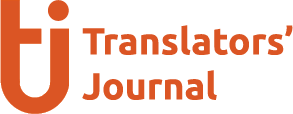There are over two million translators on LinkedIn, The real number worldwide is likely several times higher. With such staggering figures, it’s easy to wonder: is the translation market oversaturated? This deep dive suggests it is.
Adding to the challenge, AI is now embedded in most localization team workflows. While it hasn’t reduced the demand for translators, it changes the nature of the work. Many mass translation projects are now AI-assisted, leaving less room for creativity and professional judgement. As a direct result, translators often find themselves post editing machine translation which is popularly known as MTPE. This is a critical shift that devalues traditional skills even as the industry grows.
In this context, choosing between a freelance path or an in-house role is no longer just about pay. It’s more about freedom, control, and long-term career sustainability.
Let’s get straight to it.
Why Do Most Translators Work Freelance?
Freelance translation attracts the majority of language professionals for one simple reason: it’s easy to start.
You don’t need permission or an office. All you need is a laptop and a few clients. You can even find ready-made work just by registering with translation agencies and freelance platforms. This simple setup makes freelancing the go-to path for both new and experienced translators.
It’s also true that there are far more freelance jobs available than in-house positions. So it’s naturally easier to get started as a freelancer than as an in-house linguist.
The Reality Behind Freelance Translators
It’s super easy to call yourself a freelance translator and present yourself online. It’s also easy to actually get paid by completing translation projects. But there’s a catch.
Let’s take a bird’s eye view of the translation industry first.
The translation industry consists of a vast number of freelance translators on one side, clients on the other, and a few language service providers (LSPs) in between. The presence of agencies is so crucial and inseparable that you’ll rarely find a translator online who hasn’t worked for one.
Most translators struggle to find direct clients and end up relying heavily on agencies or freelance platforms like Upwork or ProZ. This model is inherently flawed — it turns translators into cogs in a system powered by CAT tools and, increasingly, by AI. Translation becomes a commodity, priced by the word, not the value.
With an oversupply of translators and faster automation, translation is now a task to be completed, not a craft to be mastered. Translators become task takers and task doers — convenient for clients, but risky for careers.
The result?
A huge number of translators struggle to make ends meet. The industry benefits because human translation can be sourced cheaply, while AI companies feed on massive amounts of translation data without breaking the bank.
What The Future Seems To Look Like
Translation has stopped being a passive profession where you sit in your home office, enlisted in a dozen platforms, waiting for work to arrive.
Competition is fierce, and pay is shrinking. This is exactly where AI hits hardest — not because translators are irrelevant, but because the system makes them replaceable.
If you’re still waiting for those LSP “task invitation” emails, that’s a red flag. In that model, whoever accepts the job first gets the work — no personality, no ownership. That kind of translation work is already being replaced.
Is the Translation Industry Too Competitive For Translators?
It is fiercely competitive when you compete on price.
When you enter the price war, there’s no limit to how low you can go, except working for free. That’s the brutal side of freelancing.
But when you build your service around quality, specialization, and individuality, the crowd thins dramatically. Competition looks worse from the outside than it truly is.
In contrast, in-house positions are competitive too, but not as grim. At least they don’t turn into a race to the bottom.
When translators compete on price, everyone loses: rates drop, burnout rises, and quality suffers.
So what’s the solution?
Stop competing. Just be a translator who translates. Work on what you love and get paid for it. Keep translating. If you don’t see what you’re translating, you’re not growing.
Own your work. Be yourself and put yourself out there. Show your work. The world will take notice and you’ll attract projects that carry meaning.
Is Freelancing Really Freedom?
Here’s the uncomfortable truth — freelancing isn’t freedom; it’s employment in the worst form unless you make it a business.
Freelancing does offer higher earning potential than in-house roles, but not necessarily more freedom. It’s still employment — you’re free to choose clients, but not free to stop chasing them.
True freedom begins when you own your systems — your brand, website, client base, and audience.
Besides, almost all freelance translators fall into the feast-and-famine cycle — months of overwork followed by panic-inducing dry spells. This happens because the business depends on short-term projects instead of long-term client relationships.
This cycle breeds desperation and drives rates down. Translators who rely on LSPs for steady work become vendors, not entrepreneurs. If that’s your freelance model, it’s a recipe for burnout.
How to Succeed as a Freelance Translator (The Business Model Approach)
To make freelancing sustainable, treat it like a business, not a hustle.
You really need to transition from “vendor” to solopreneur:
- Build your system — set up a professional website, CRM, invoicing, a way to get paid, etc.
- Create an audience — use content, newsletters, or LinkedIn to stay visible.
- Control your marketing — don’t depend entirely on platforms; make clients come to you.
- Automate client management — simplify onboarding, payments, and follow-ups.
When you run your freelance career like a system, your income stabilizes, your stress decreases, and your reputation compounds. Owning your client relationships is the line between freedom and dependency.
Most translators avoid this because they “just want to translate.” So others solve these problems for them — finding clients, managing payments, handling communication. These are platforms like ProZ, Upwork, or LinkedIn. They make life easier, but at a cost: control.
When Freelancing Isn’t for You
Freelancing isn’t for everyone — and that’s perfectly fine.
In that case, consider pivoting to an in-house role — at least temporarily. It’s often the best way to build experience, confidence, and stability before venturing out again.
When you’re not ready to operate like a business, an in-house role can be the right move.
The Case for In-House Translation Jobs
In-house translation jobs are making a comeback — especially in corporate localization.
It has its advantages:
- Predictable salary and benefits
- Team collaboration and mentorship
- Consistent workload and structured feedback
These roles are ideal for translators who prefer steady rhythm and lower financial risk. You’ll gain experience with technical workflows, CAT tools, and quality processes — all valuable if you later decide to freelance.
Growth may be slower, but stability has value — especially when the freelance market fluctuates. You’ll probably face less variety and fewer creative challenges, but you’ll gain a foundation and a safe space to grow.
Freelance or In-House: How to Decide What Fits You
Before choosing your path, assess your goals and risk tolerance honestly.
Ask yourself:
- Do I value freedom or stability more right now?
- Can I handle inconsistent income for long-term growth?
- Do I enjoy marketing and negotiation?
- How much structure do I need to stay productive?
If you’re unsure, test both. Try part-time freelancing while working in-house, or take short contracts before going all-in. The best translators evolve through experimentation, not rigid plans.
Want Weekly Updates on Translation Jobs?
Speaking of in-house roles, you can discover current open jobs in your language pair as well as non-translation roles in the language industry simply by subscribing to Weekly Job Window.
This is a weekly job digest that we send to our subscribers each week. Weekly Job Window won’t give you a job, but it will give you clarity: insight into market demand, required skills, and real-time opportunities.
Try it free for one month. Unsubscribe anytime.
👉 Subscribe Weekly Job Window
Final Thoughts: Redefining “Career” in Translation
Let’s be blunt — freelancing isn’t freedom if you’re still chained to someone else’s system. And in-house work isn’t confinement if you use it to learn, grow, and build your foundation.
Whether you choose freelance, in-house, or hybrid, the real victory is having control over your career, clients, and creativity.
If you freelance like an employee, that’s not true freelancing. Only when you work as a business can you truly be a freelance translator.
Otherwise, you’re exposing yourself to exploitation — working for multiple employers who take no responsibility, and who can vanish at any time.
So, choose consciously. Build systems that serve you!
Are You Looking for Jobs in the Language Industry?
If you are looking for in-house jobs, you should check out Weekly Job Window.
Every week, we handpick in-house jobs for translators, interpreters, linguists, writers, editors, and localization professionals so you can stay updated without searching hundreds of listings spread across the internet.
You can access the latest jobs of the current week here. Feel free to bookmark it as well.
To get the full list every week to your inbox, subscribe.



